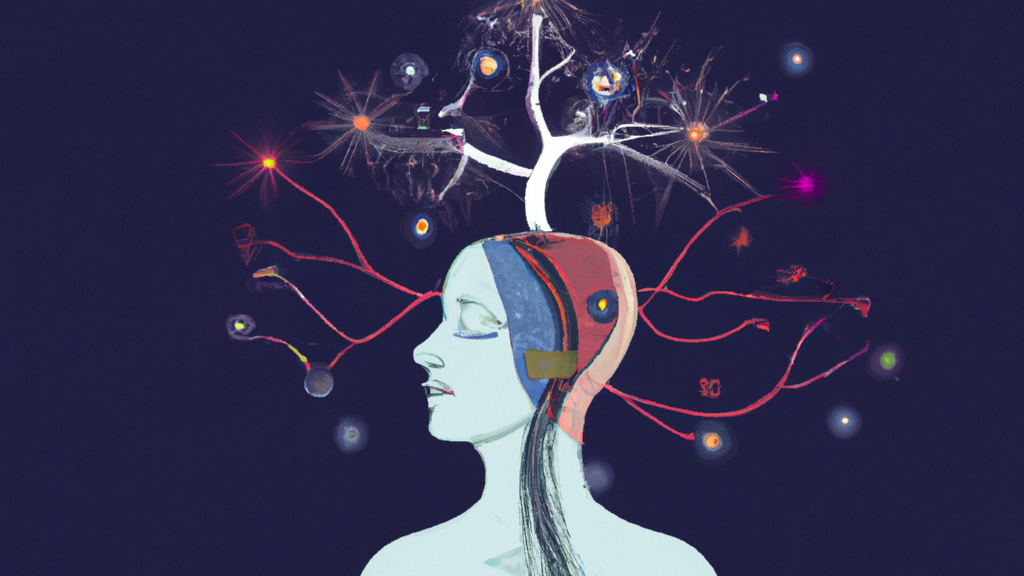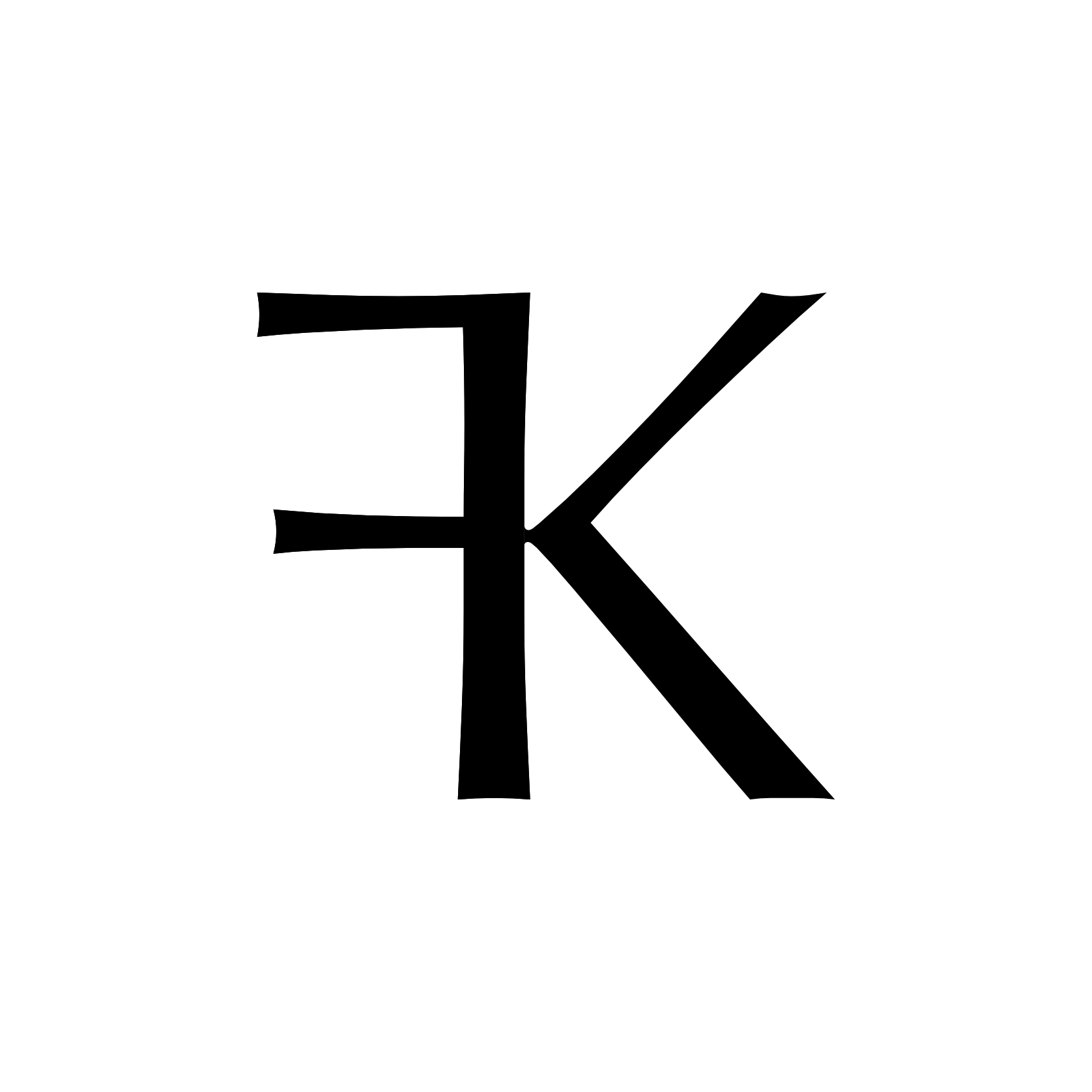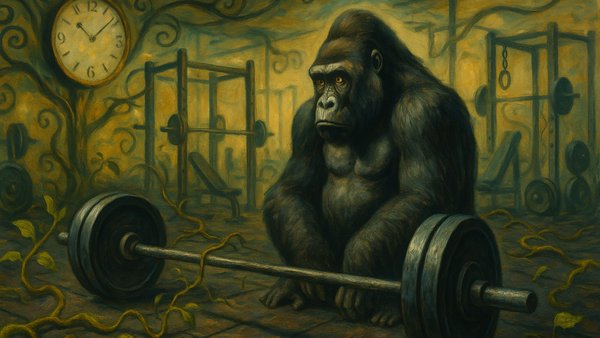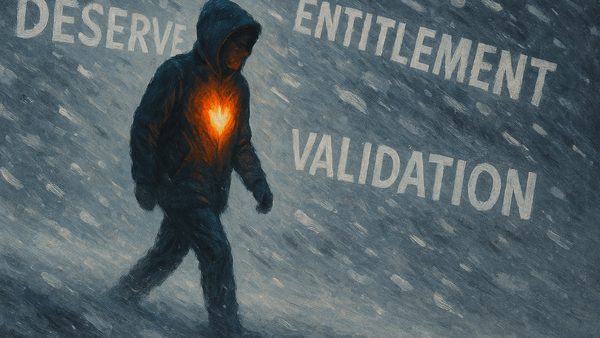How to Escape the Prison of Expiring Information
How mainstream media deludes you with expiring information. Learn how to cut through the noise to generate true knowledge, insight and wisdom.

When it comes to creating businesses or building any significant professional or personal skill, it seems that some people are highly efficient and successful whereas others barely move from point A to point B on their acclaimed journey.
One of the main differentiators between these two groups of people is the type of information they habitually process on a daily basis. Information can either transform into knowledge and ultimately generate insight to fuel choices of action, or it withers, expires, and is discarded.
No matter which of these pathways information takes on its way of being processed by our mind and body, the time invested to acquire information of either category is fairly similar. So when it comes to generating knowledge and insight, the key lies in choosing the right type of information.
Expiring Information
The vast majority of people make poor choices regarding the type of information they take in. Most people consume information rather than invest in it.
Maybe you stumble over an inspiring quote on Instagram, a valuable thought on Twitter, or a dialogue in a movie that sparks your interest. If you don’t work with it either through elaborate thinking, writing, or other means of processing, or by letting it guide you to more elaborate reads, it soon will be dismissed by the next snippet of information that demands your attention. You get the impression you created knowledge or even insight. This is a delusion. The period of exposure to your senses is simply not long enough and the processing time required for the mind to integrate the information after the exposure is pretty much nonexistent.
The truth is that most forms of informational media rely on your consumptive behavior. That you forget information quickly after intake so you feel the need to come back to the same source to receive the same kind of information over and over again, sometimes slightly modified but often in the exact same format. You don’t notice because the information continuously expires.
Any form of expiring information is purposefully designed to be consumed easily.
News and other short forms of information - not “education” - like television, streaming services, TikTok, YouTube, Instagram, and the like are designed to invoke craving through entertainment, challenge, and reward. If they contain information of value it comes at best in the form of infotainment. Even if you have the impression you just learned something valuable there are two issues:
- The time amount of exposure of your senses to the piece of information is minimal and usually not enough for your mind to reflect on it. For reflection to happen, you need a certain time of exposure followed by a period of withdrawal from new stimuli. A book can provide you with that space, TikTok rather not.
- Typical sources of expiring information are designed to be emotional, colorful, luring, attention-grabbing, and fast-paced, to address the subconscious aspects of the mind, and are therefore not supportive of digesting information consciously. Knowledge is derived from information through the act of thinking, which is the development of concepts and ideas, that lead to conscious choices of perception.
Does that mean you can’t use such sources of information? You can. But you need to discipline yourself and consciously create the space and time for proper sensory exposure and mental reflection as well as develop a high level of awareness of the emotional bias.
A book will generally provide a better surface for systematic note-taking and highlighting as well as pausing, thinking, and additional writing. Remember, almost all information dispersed through media of the mainstream is mainly derived from more substantial and elaborate forms of recorded knowledge. Mainstream media, especially in its socialized manifestations of Instagram and TikTok, is not designed to expand to the depths of larger concepts like books do, simply because there’s not enough space on the screen of your phone and not enough time before the next post demands your attention.
How about the news? They suffer from the same issues described above. Whether or not you should take in news depends on your profession and personal interests. News should generally be perceived as recurring examples—temporary snapshots—of bigger concepts and historical dynamics. These bigger concepts can only be understood by accumulating knowledge through compounding information; or in other words: by reading books about history, psychology, theology, politics, sociology, geography, and the like. If you need to stay on top of the recent news because your profession demands it, go for it. Otherwise, if consumed at all, news should be treated as complementary snippets of information in addition to a strong foundation of compounding, knowledge-generating information. In general, time is much wiser invested in grasping the underlying dynamics and fundamental rules than taking a consumptive glance at their symptoms.
How to spot expiring information:
- Expiring information is attractive. It’s visually appealing, comes with a soundtrack, and triggers your emotional patterns. Sometimes it’s amusing and sometimes it’s serious but it’s always entertaining. Just one thing it never is, even if it claims to be: knowledge.
- Expiring information lacks detail, nuance, and perspective. It conveys simple messages that don’t require thinking. It commonly tells you what happened but not the reasons and dependencies why it happened or the general conditions under which it might happen again.
- Expiring information is easily digestible and requires none to little effort to attain. It follows your favorite TV show at 20:00h and pops up on your phone as a push notification.
- Expiring information won’t be relevant in a week, a month, or a year from now.
- Expiring information is marketed to you.
Oftentimes, more information just creates more confusion and continues to diminish your sense of orientation, purpose, and meaning. Like a labyrinth whose paths you don’t know and whose exit you can’t find because its walls seem to constantly shift places. This is a very common ever-present phenomenon, which is enhanced particularly by the overload of information in our modern globally connected world. If treated properly, on the other hand, information can turn into knowledge which allows you to draw insight.
Compounding Information
Warren Buffet is certainly one of the most iconic idols in the world of finance. The way he treats information is typical of people who created successful businesses. Here’s a snippet from The Snowball: Warren Buffett and the Business of Life by Alice Schroeder:
Starting [at a young age] he’s read everything that he could find about business. The subject that interests him, he’s read newspapers, biographies, trade press. He went over to his grandfather who was a grocer and he read the progressive grocer magazine, and he read articles on how to stock a meat department. He’s gone to visit every company that he could find that was even slightly interesting to him, he went down to visit a barrel maker and spent hours talking about how to make barrels. He went to American Express, and he spent hours talking about that business, he went to GEICO and learned about the insurance business. He has stacks of reports on his desk from the companies he owns, pig stalls, jewelry, boat winches, everything you can imagine. He reads hundreds of annual reports every year from companies that he doesn’t own yet, because he just wants to understand their businesses, and then when the opportunity arises, then he’s ready and he can make a decision. What he’s really done is he’s created this immense vertical filing cabinet in his brain of layers and layers and layers of files of information that he can draw back on now for more than 70 years worth of data.
Take a moment to reflect on Warren Buffett’s approach. Apply thinking. In which way is it different from other people’s habit of consuming expiring information?
To compound information you need to invest in it rather than consume it. As it goes for anything material that is worth possessing, knowledge and insight are created by acts of investment. This investment comes in the form of dedication, time, commitment, discipline, patience, focus, and energy. At times it comes in the form of money, although money rarely is the actual resource required. On most occasions, we use a lack of money as an excuse to avoid making a real investment.
Compounding means piling up processed information for it to connect, leverage, and create solid building blocks for the heavy brick walls of your house of knowledge. Information suitable for compounding cannot be easily digestible - by definition. Because the development of knowledge and insight requires the creation of neuronal pathways. It requires work with the mind.
Otherwise, everybody would be knowledgeable. Wisdom ultimately emerges from the culmination of accumulated insight. Does everybody automatically become wise? Of course not. Very few do, as a result of lifelong disciplined dedication; and we seek their wisdom for guidance. Even though one or the other proverb implies that wisdom comes with age, time represents just one variable in the equation.
Your Path to Wisdom
In the example of Warren Buffet the core discipline is financial literacy. The majority of his informational intake is categorized in business and finance and aims to describe universal patterns and practices that expire slowly - if at all. On top of that, the type of information already is of high quality and he takes the time to process all the input. Thinking and learning about business is his intrinsic interest.
If you want to become knowledgeable or go beyond insight to create wisdom, you must filter your intake and pick information that meets the following criteria:
- The information complements similar or categorically related disciplines. Although all kinds of knowledge from all imaginable categories ultimately complement each other, you will create dramatic leverage by adjusting your input filter for a certain set of categories or topics. The information about how to cultivate rice fields properly will ultimately complement the information about writing and embedding HTML code on websites, but it may not leverage short term. Limit and filter mainstream media. Pick your categories.
- The information compounds because it is not subject to expiration or expires slowly. Planet Earth circles the Sun. Together with other planets and cosmic objects, the Sun and Earth form the solar system, which itself circles a larger massive object, a black hole. The sum of solar systems and cosmic objects circling that black hole form a galaxy, which we call the Milky Way. This information will most likely remain a more or less accurate description of our shared reality for a long time. The name of Selena Gomez’s current boyfriend might not.
- The information already is of high quality. It is detailed. It discusses. It offers different perspectives. It educates you about underlying principles and rules. It utilizes scientific concepts and insight. Political biased writings and such that claim ultimate truth also qualify, just stay aware of their limited perspective. Pick books, essays, letters, articles, and other elaborate writings of people who are successful according to your individual definition of success. Skip mindless scrolling through tiny snippets of information on social media posts from people without a track record. However, social media can be an incredible source of inspiration that directs you to sources of elaborate, high-quality information.
- The information is being combined with your processing through reflection and thought. This means you need to create mental space and silence to form opinions and ideas. This way you learn to see what other people are missing. Operationally you do that by recording your thoughts in written text in a notebook, by sketching, drawing, or otherwise transmuting your thoughts into art through painting or composing music. Any form that is suitable to reflect your collected thoughts back to you to spark further thought. If you organize your knowledge using computer systems or other forms of a so-called “second brain”, make sure that you don’t fall into the trap of avoidance and just store the information without processing it with your mind. Constantly relying on an external library to retrieve information doesn’t lead to wisdom.
Start choosing your information instead of it being chosen for you. Stop enslaving yourself by the misdirection through expiring information. Start compounding.
Did you enjoy this article? Please consider contributing to this publication’s financial freedom.
Flows straight into content, not coffee.




